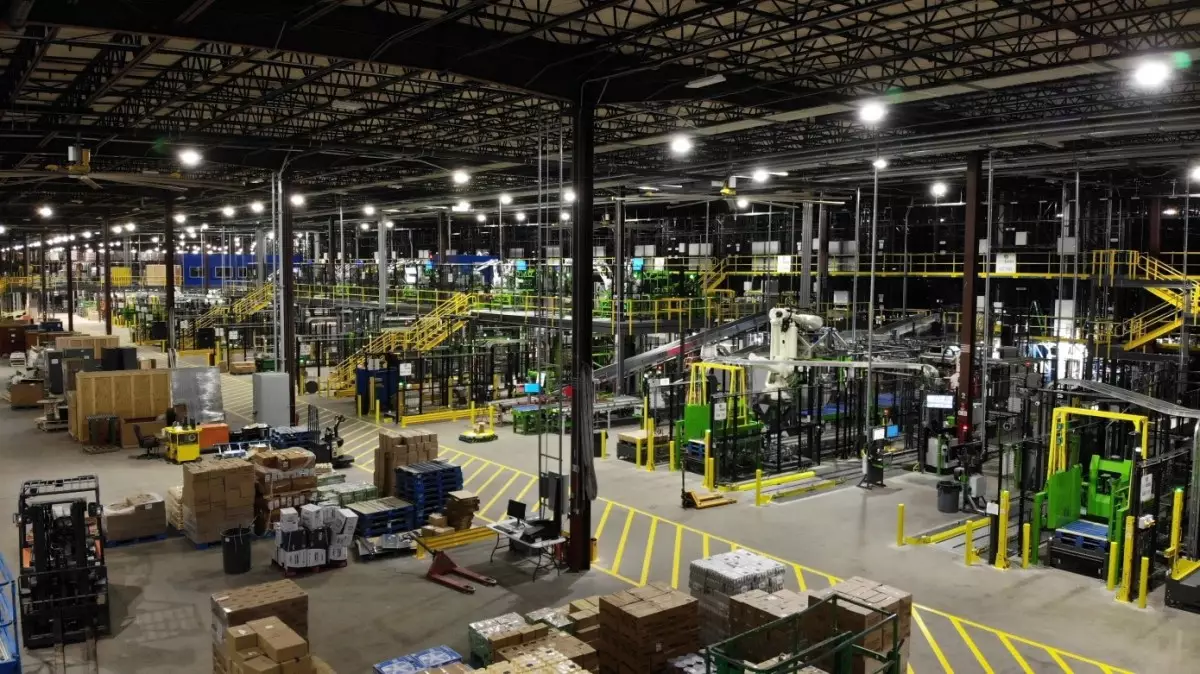Walmart has officially engaged Massachusetts-based robotics company Symbotic in a groundbreaking partnership that marks a significant evolution in retail automation. This agreement, announced on a Tuesday, allows Symbotic to assume direct control of Walmart’s automation endeavors, a strategic move that underscores the growing importance and reliance on technology within the retail sector. Symbotic’s upfront financial commitment of $200 million, alongside a potential $350 million depending on future performance, signifies a bold investment in automation that could reshape supply chain operations in ways that maximize efficiency and reduce costs.
The financial structure of this agreement is multifaceted, as Walmart will funnel a total of $520 million to Symbotic, which includes a $230 million payment contingent on the deal’s finalization. This wraparound investment reveals Walmart’s commitment not only to Symbotic but also to enhancing its operational capabilities through advanced technology. The complexity of this financial relationship highlights Walmart’s strategic maneuvering to leverage robotics and reduce dependency on traditional labor models, while simultaneously securing Symbotic as a key technological ally.
Walmart’s longstanding history with Symbotic dates back to 2017 when the retailer first began integrating automated systems into its operations. This collaboration has evolved, reinforcing Symbotic’s role as a vital player in Walmart’s logistics framework. While the specifics of how this partnership will affect Symbotic’s contracts with other companies remain murky, the implications are consistent with a broader trend towards consolidation in retail tech. This mogul-like transition echoes Amazon’s acquisition of Kiva Systems, which birthed Amazon Robotics—a move that transformed their warehouse operations.
As Walmart gears up for a second Trump administration, which signals a likely more permissive attitude toward mergers and acquisitions, the implications of this deal could ripple through the retail landscape. Unlike Amazon’s failed attempt to acquire iRobot, which faced regulatory roadblocks, Walmart’s clear trajectory towards investing in Symbotic places it in a strong position to enhance its technological framework. Innovations spearheaded by this partnership are expected to close by the second quarter of 2025, potentially setting a new standard for automation practices across the retail sector.
Challenges Ahead
Despite the promising outlook, challenges loom ahead. For instance, the integration of automated systems across extensive distribution networks remains fraught with complexity and potential resistance from employees as labor dynamics shift. Moreover, securing future partnerships or expansions outside of Walmart could become increasingly challenging for Symbotic as it navigates this new commercial landscape shaped by their primary client. The ability of Symbotic to diversify its clientele will be critical in ensuring sustained growth and stability, which will be paramount as retailers ramp up their automation efforts in response to market demands.
The alliance between Walmart and Symbotic represents a significant moment in retail history, underlining the shift toward automation. As both companies navigate this transformative phase, it stands to reshape the logistics industry and set benchmarks for competitors in an increasingly technology-driven marketplace.

